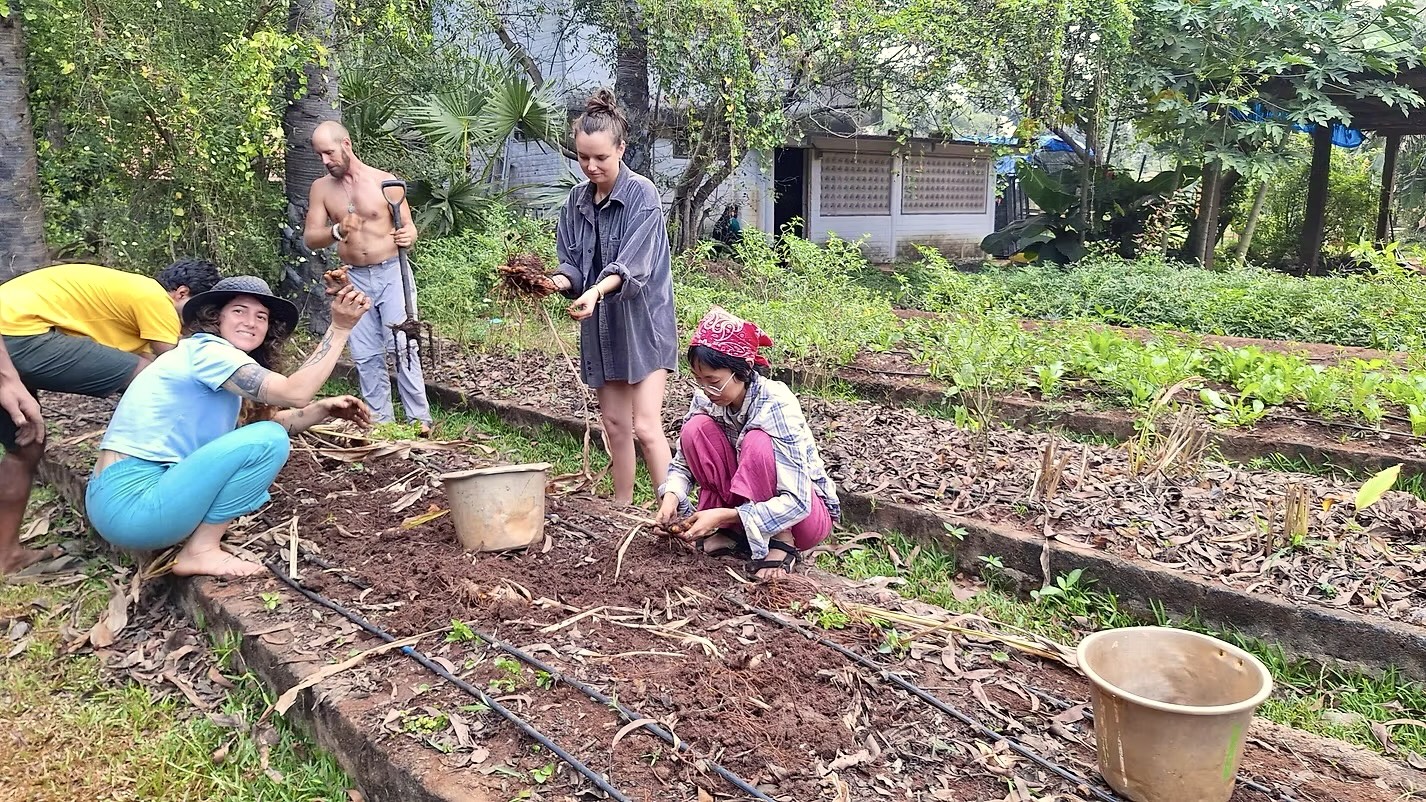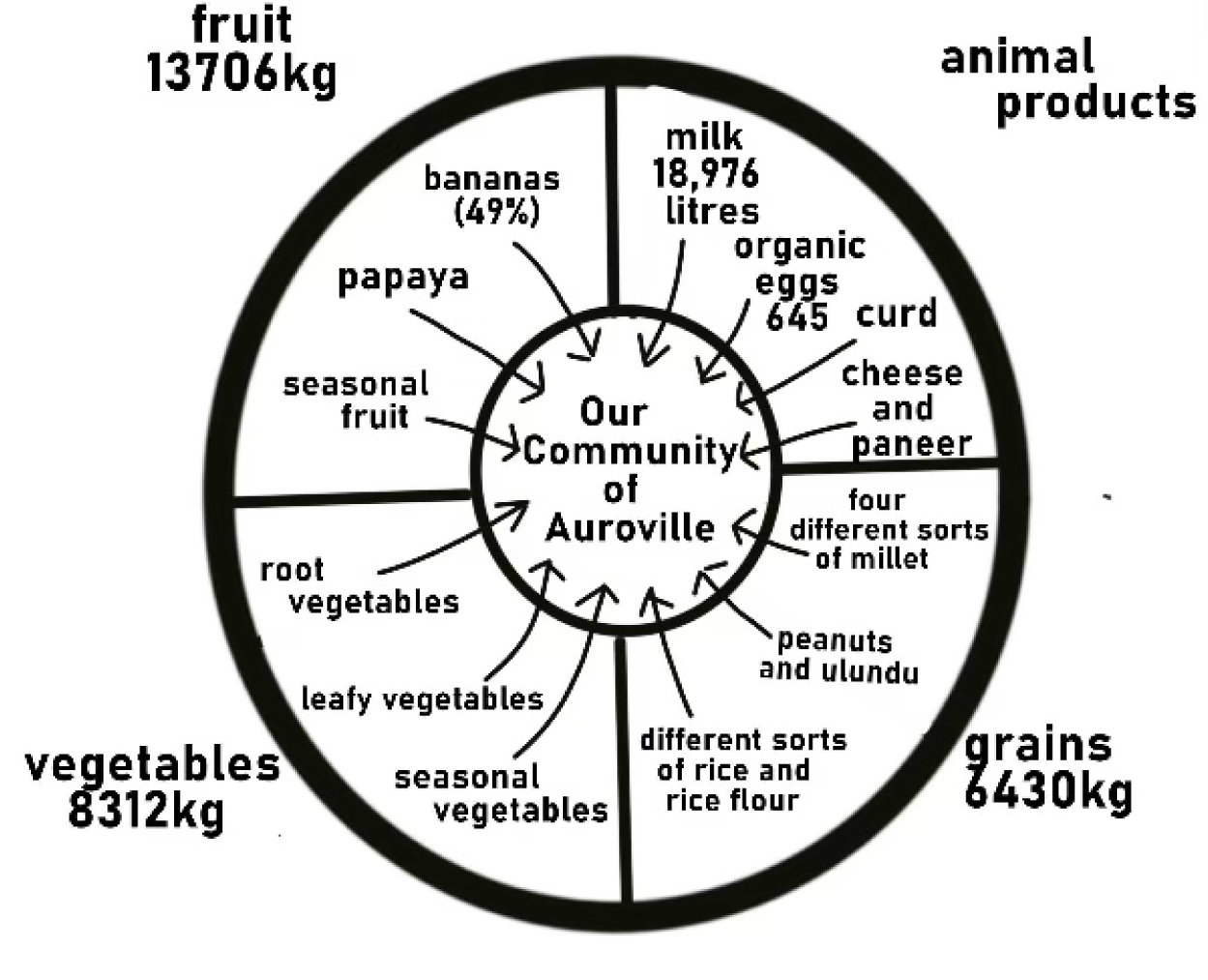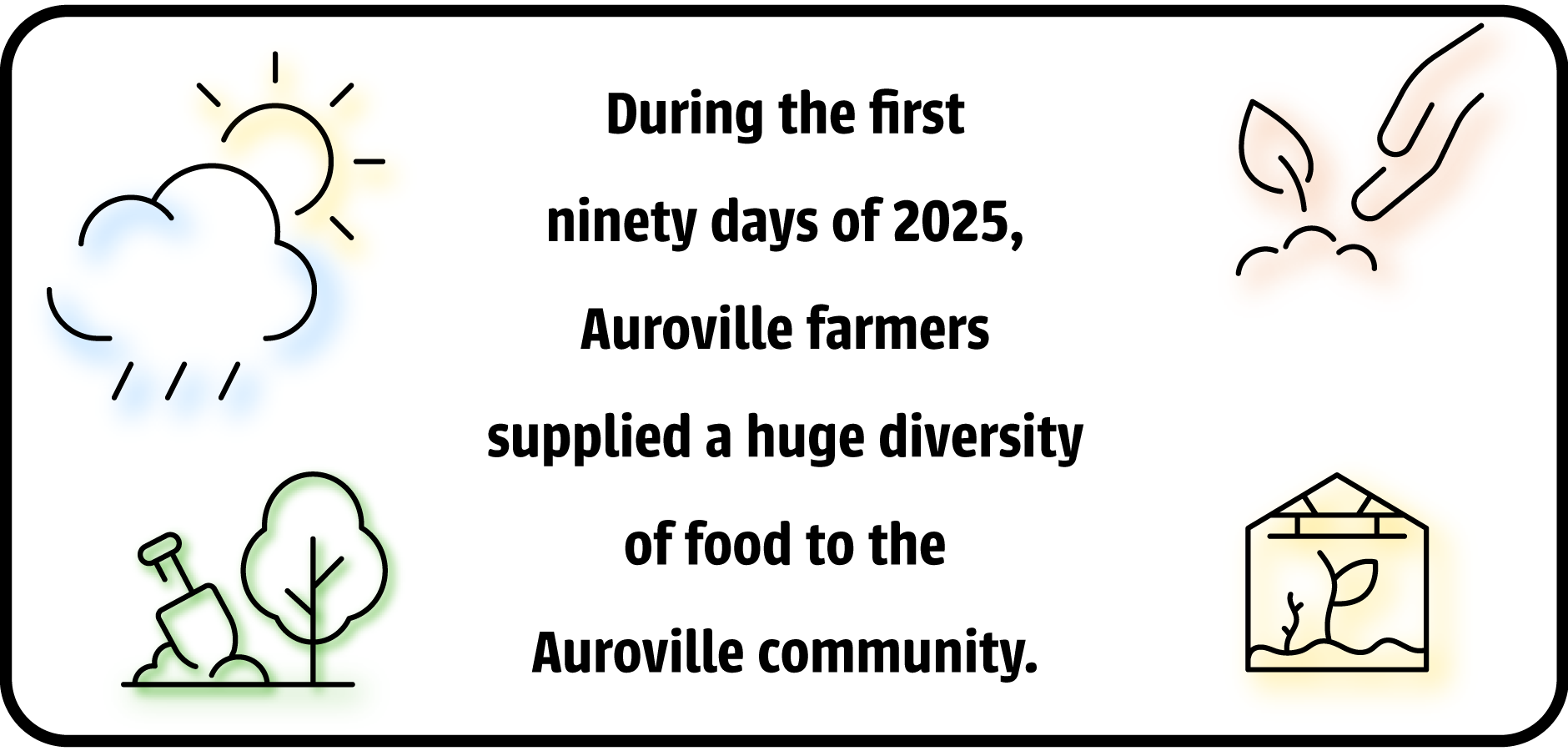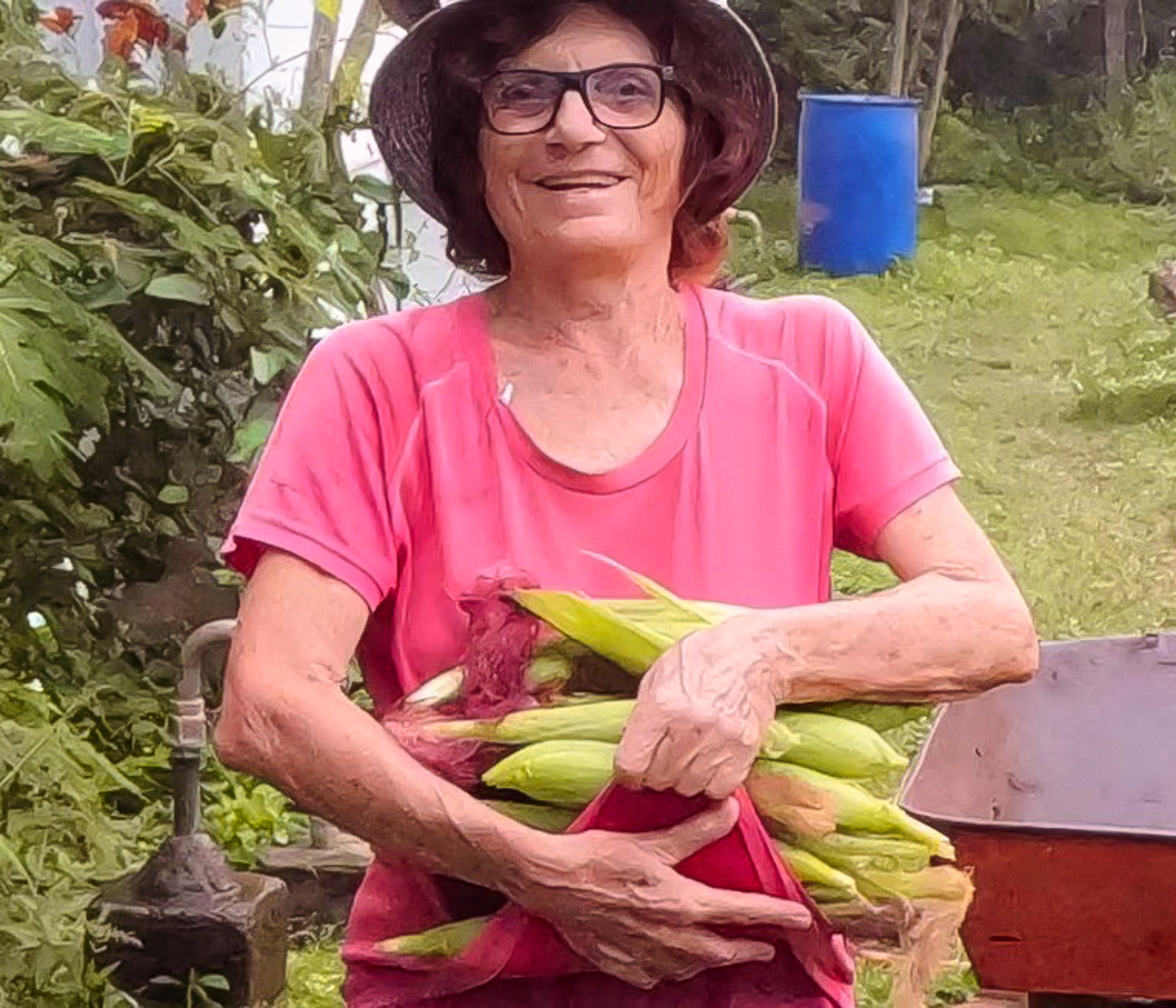FARM GROUP UPDATES
SPRING 2025

We are sharing an glimpse into Auroville’s farms and food production in the first three months of 2025.
This update comes via Priya, of Buddha Community Garden and is shared with permission.
Auroville’s farms and food production community share a vision of organic, seasonal food production, equitable distribution and sustainability. In the first months of 2025, Auroville’s farmers shared an abundance of fresh, local food with the community, abundance rooted in both outer efforts and and the quiet, inner awareness and alignment with the earth.
Over the past few months, a group of farmers, Foodlink, and others have come together to dream up a better, more earth-conscious food system. At the heart of it is a simple idea: that everyone in Auroville should have access to good, healthy food grown in harmony with nature.


Auroville farm food production diversity included nearly 19,000 litres of milk (which works out at approximately 211litres/day) as well as eggs, curd and various sorts of cheese from Auroville’s poultry and cows. While over 50% of the fruit supplied to Auroville were bananas/papaya we also got to enjoy seasonal fruit like pommelos, ramphael and bael fruit.
Similarly with vegetables of which there were 50 different sorts supplied during this period. This included the basic staples like brinjal, ladies finger, various sorts of beans and pumpkins with a variety of leafy vegetables like lettuce and roccolla. Lettuce and Roccolla have sadly stopped growing now the temperature has risen, but were much enjoyed during their peak at this season.
Grains were supplied via Foodlink from the Grain Store in Annapurna. As well as different sorts of rice and legumes, like peanuts and ulundu, there were also four different sorts of millet – Ragi, Waraigu, Samai and Cambu. These coming mainly from local farmers working in association with one or more Auroville farms.
Millet is a good example of what happens when food is bought and sold like other consumer goods. A few decades back when people became richer, they started eating more rice, and millet, which was once a staple food in this area, was no longer eaten. Nowadays millet has become a Health Food for the rich and prices are high. Millet is an excellent crop to grow in this area as it needs much less water than rice. It also has many health benefits containing much more fiber and a wider range of nutrients than rice. The reason that Av farmers do not grow it is because yields are very low. The crop is prone to wildlife, especially birds like parakeets and peacocks, and animals like pigs and deer. It requires a lot of labor which is difficult to get and is very costly. Traditionally millet is grown under rainfed conditions which with the more erratic weather patterns these days is very risky. All this could be addressed if we value the millet for its generic value instead of a commodity, seeing only the economic aspects while losing sight of the real value of the food.
This and similar topics are what a group of farmers, Foodlink and others interested in the food system in Auroville, have been discussing during regular meetings during the last three months. Rather than spend our time fighting the negative aspects of the present situation We have tried to envision what would be the best food system for Auroville. To create a positive and better alternative to what we have at the moment. What should we grow? How should we support those who do the growing? How can we set up a system to ensure that everyone in Auroville has the healthy food necessary for a healthy life? Watch out for future posts about how we are going to move this forward and involve many more people in the community in this very important focus for our community. After all, we all need to eat to go on living, with eating being our strongest link to the Earth. What we eat and how it is grown really makes a difference both to us individually and to the environment.
If you would like more information please contact us, using any email address you like, at aurovillefarmgroup@gmail.com
Meanwhile as we move into the Hot Season farmers are preparing for growing the hot weather crops needed for the next three months. Expect to see a lot of fruit – especially mangoes and jackfruit together with bassella spinach, snake gourd, brinjal, ladies fingers, pumpkin, cucumber, cluster Beans and long beans.
Anshul, Charlie, Moorthy, Priya, Sathyavan, Velmurugam

About Priya
Priya is an UK born Aurovilian, with a PhD in Sociology. She arrived in Auroville in 1996, and started Buddha Community Garden in 2000. Through the years, Buddha Community Garden has become an abundant 8 acre farm which fosters community farming education, helping Aurovilians, villagers and visitors learn to develop “food growing systems” both in small farms, and in private homes with only a balcony or window boxes, small community garden patches, and generally finding creative ways to benefit from natures abundance.
